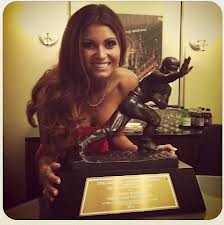I’ve been a parent for over 20 years now. I’ve also been a child for 51 years. So, I know a thing or two about parents and children. Experience is, after all, the best teacher.
I don’t listen to parenting advice, because most of it is useless. I also haven’t done any research on parenting, except for my own hands-on research with three sons. As a result, anything you read here should be taken with a grain of salt. It’s unlikely that I know any more than you do, unless you don’t have children. In that case, I know more about parenting than you will EVER know, unless you end up having kids. As an aside, if you have dogs, I’m fine with that, but it doesn’t count unless you have to send your dog to college or it learns to drive a car.
Over the years, I’ve heard a lot of stuff about parenting. Most of it is wrong, at least for me. As a service to my fellow parents and future members of the club, here are the Five Myths of Parenting:
1. PARENTING IS THE HARDEST JOB YOU’LL EVER HAVE
I guess this is possible, depending on what kind of job you have. I’m a lawyer, and it’s a pretty hard job. I’ve worked long hours under tremendous stress. Parenting isn’t nearly that stressful.
Have you ever heard of a “belt mucker?” That’s a job in a coal mine where you clean up coal spills on the conveyor belt line. You use a shovel. Often, you work bent over or on your knees because there isn’t room to stand up. Sometimes, the mine floor is so wet that you have to use buckets to clean up the coal and muck. It’s a hard, hard job–much harder than being a lawyer and a hell of a lot harder than taking care of children.
Watch the film The Hurt Locker. Think about being on a bomb squad in Iraq. Helping Johnny with his homework doesn’t seem so tough, does it?
I saw a guy pumping out a port-a-potty the other day. I bet he wouldn’t mind doing your kid’s laundry.
None of this means being a parent is easy. Nothing worthwhile is easy. Nevertheless, there’s a huge gulf between easy and the most difficult thing on Earth. If parenting is the hardest job you’ve ever done, chances are you’re doing it all wrong.
2. YOU MUST DO THE BEST YOU KNOW HOW TO DO
We all like to think we’re doing our very best in raising our children. That’s a lofty goal, but it’s not true nor is it necessary. Is there anything you do that you always do the best you know how to do? How about your job? C’mon. Everyone slacks off at work. You take vacations don’t you?
The thing about parenting is that you’re always on the clock. We all take breaks on occasion, and that’s okay. Ever park your kid in front of the television? I have. My oldest son used to be hypnotized by Barney. We need that sometimes. Who among hasn’t sent one of the kids to a neighbor’s house just for some peace and quiet? Again, it’s okay.
Here’s what we should do all the time: Stuff. Something. Anything (assuming it’s not harmful). Make your kids dinner, even if it’s crappy. Ask them about school, even if you really don’t give a damn at the moment. Feign interest in what they’re doing, even when you are much more concerned about yourself. Go to their ball games despite them being poorly played or your kid not being any good. Act like you’re interested. Maybe this is the best we can do, but that’s doubtful.
Just do stuff. Half-ass is okay. Often, you’ll be totally on your parenting game and fully engaged. When you’re not, just do stuff.
3. YOU ARE RESPONSIBLE FOR YOUR CHILD’S SUCCESS
This is a double-edged lie–that you are responsible for the success of your children and the converse that you are to blame for their failures. Although you can make substantial contributions to either outcome, you can’t truthfully claim credit.
Your kids are people–human beings even. They make decisions. They don’t listen well. Some of them, despite being otherwise fine children, rebel against your advice. I was like that. If told to do something, I spent all my energy on finding another way to do it. The older they get, the worse it gets, too. Have you ever tried to force someone to do something? It’s not easy.
Maybe your kid does well, because you’re the greatest parent on Earth. Then again, maybe your kid has certain natural strengths and exploits them. I have two sons who are excellent athletes. Why? They were born that way. Another of my sons is as smart as anyone I’ve ever met. It’s just how he is. I didn’t train him to be that way.
Let’s say you send your kid to only the best schools. Here’s a little secret that your kid probably hasn’t shared with you. Kids at the best schools drink, take drugs and have sex with each other. They do. If your kid wants to find a bad crowd, it’s right there. You can provide opportunities for your son or daughter, but if he or she does well, give credit where credit is due–and it ain’t to you!
If you are fortunate enough to be able to provide the best for your kids–schools, clothes, houses, etc.–consider that your kids have many advantages. In fact, they should do well under those conditions. If you’re born on third base, you didn’t hit a triple.
The other side is that your kid may do very poorly. Do you want the blame for that? I sure wouldn’t. The good news is that it’s probably not your fault. Oh, you may play a part, just like with the successes. You may be one of those despicable parents who do nothing for their kids. If so, you’ve laid the groundwork. Ultimately, though, your kid gets to own his or her failures.
Another reminder–here’s what you can do: Something. Just do something. Try. Give them some direction. Set a good example. Help them when they need help. Be sure they go to the doctor. Feed them. Clothe them. Just put forth a little effort. Something is better than nothing.
4. YOU MUST PROTECT YOUR CHILDREN
I’m not suggesting that you ignore your children. Of course, we all should try to shield our children from harm and do no harm to them ourselves. That’s not the same as insulating them from the world. That just can’t be done.
Nowadays, we’re bombarded with terrifying scenarios: drug abuse, pedophiles, bullies, Internet stalkers, ungodly schools and general evil. It would be nice to just spare our kids all of this. You can’t. I can’t. We can’t. The world has a lot of rough edges. And that is where we all have to live. Sorry, but that’s how it is. If your kid gets bullied or just does something disappointing, it’s not because of bad parenting. It’s what happens in the world. Deal with the consequences, but don’t delude yourself into thinking you can smooth off all those rough edges.
We can’t hide our kids. Bad things can happen to kids, just like adults. Illness, accidents–even death befall kids. Everyone who dies is someone’s child, you know. Now, I realize this will step on toes, but even God won’t protect your kids from the world. What makes you think you can?
If something bad befalls your kids, it’s not your fault–unless you did it. The world is a tough place.
Again, do stuff. You won’t always do the best you can, but do stuff. Every little bit helps.
5. YOUR CHILDREN MUST BE YOUR NO. 1 PRIORITY
This is another lofty goal, but unrealistic for all but the truly deranged. Think about it. If your kids really are your Number 1 priority, that means they rank ahead of you; your spouse, faith and job; and everything else. If you have more than one child, you have to spread this maniacal devotion among multiple targets. That’s a tall order.
I’ve heard many people say “My children come first.” I doubt that’s true or even should be. For example, I have a job and need it to feed, clothe and shelter my kids. If I always put them before my job, I’ll soon be unemployed and spending ALL my time with them.
Are you married? If so, you might think about making your spouse a top priority. Here’s a radical thought for many: Sometimes, your spouse should be your top priority. If your kids rank ahead of your spouse, you probably have a fairly toxic relationship going on there. Good luck.
There’s also a fine line between prioritizing your kids and making them think they are the most important people on Earth. The latter is not good. Kids are already self-centered ego maniacs. They believe that the world exists for their entertainment. Reinforce that for them, and pretty soon you’ll have little monsters.
Try this for a more realistic ideal. Your kids should be a top priority. Keep them in mind. Just don’t let them choose the dinner menu or decide what time they go to bed or what the family watches on TV. Just pay some attention to them. My kids want my time–not all my time. Just some of it.
So, I can sum up all I know about parenting with this: Do stuff. Some of it will be really good and pay off. Some of it won’t. One day, your kids will have kids and know just as little you do. Then, they’ll think you’re a genius and may even seek your advice. Do stuff.
©thetrivialtroll.wordpress.com 2013









